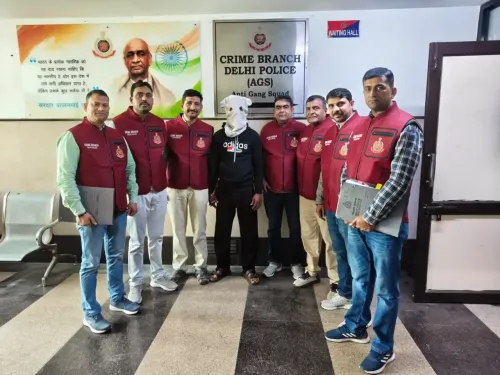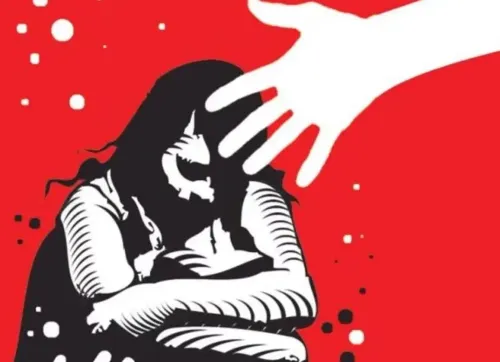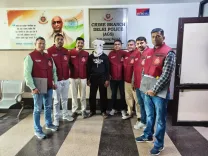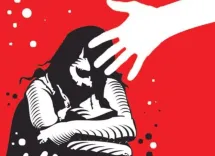Opposition and Religious Leaders Deem Waqf Bill a Major Assault on Muslims; Protests Set to Escalate
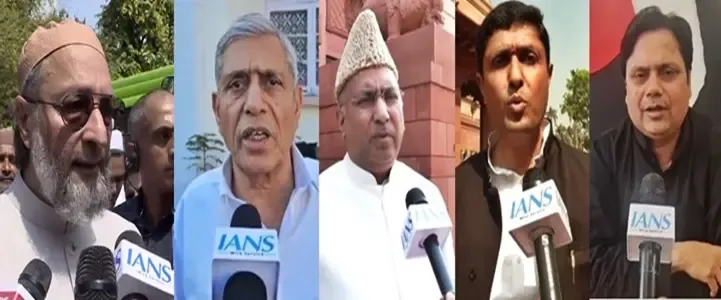
Synopsis
Key Takeaways
- Opposition parties are uniting against the Waqf Bill, viewing it as a serious threat to Muslim rights.
- Congress and AIMIM leaders are vocal about concerns regarding the Bill's provisions.
- Religious leaders criticize the Bill for potential discrimination against Muslims.
- Protests are expected to continue, reflecting deep political divides.
- Incidents of confrontation at protests highlight rising tensions.
New Delhi, March 17 (NationPress) The All India Muslim Personal Law Board (AIMPLB) has intensified its protests against the contentious Waqf (Amendment) Bill, 2024, with numerous Opposition figures branding it a "black Bill" that aims to unlawfully seize properties belonging to the Muslim community.
Despite the BJP's steadfast support for the Waqf Bill, asserting it is essential for protecting national interests, the political and social rift over this issue is deepening, paving the way for an extended struggle.
The Waqf Bill, intended to modify existing regulations regarding properties allocated for religious or charitable purposes, has ignited a strong backlash from the Muslim populace.
AIMIM leader Asaduddin Owaisi expressed significant concerns, questioning the legal basis for specific provisions.
"You claim that no oral gifts can be made to mosques, yet personal property transfers to children are permitted? Which legislation are you referencing here?" Owaisi said, contending that the amendments would generate confusion and threaten the integrity of the Waqf system.
The Samajwadi Party has also been vocal in its opposition to the Bill.
Fakhrul Hasan Chaand, a notable leader, condemned the Bill for neglecting input from various stakeholders.
"The Joint Parliamentary Committee (JPC) dismissed crucial feedback because its chairman is affiliated with the BJP. This isn't a democratic process," stated Chaand.
The Samajwadi Party, alongside other Opposition factions, has vowed to persist in its protests until the Bill is retracted.
The Congress party has also expressed disapproval of the Waqf Bill. Nizam Uddin Bhat, a Congress MLA, raised alarms regarding the Bill's impact on religious liberty and the rights of minority groups.
"This intervention is unjust. Every faith should be able to manage its properties without governmental interference. The Bill infringes upon equal rights," he remarked.
Ujjwal Raman Singh, a Congress MP, echoed these views, advocating for more inclusive dialogues. "The worries of a significant segment of the population remain unaddressed. The Waqf Bill cannot be considered complete without consensus from all parties involved. A majority-driven decision might pass the Bill, but it won't necessarily yield equitable legislation," Singh cautioned.
Conversely, BJP representatives, including Rajya Sabha MP Gulam Ali Khatana, have staunchly defended the Waqf Bill. Khatana asserted that any misappropriated Waqf property would not go unaddressed.
"The property that has been plundered — our Prime Minister will not allow it to remain unchallenged," he proclaimed. His remarks reflect the government's stance that the Bill aims to reclaim Waqf properties that have allegedly been misused or encroached upon.
Religious leaders have also emerged as pivotal figures in the protests.
Maulana Kalbe Jawad, a prominent Shia cleric, vehemently criticized the Bill, labeling it a "destructive" piece of legislation.
He likened the Bill to a "snake," suggesting it was a perilous maneuver aimed at undermining the rights of the Muslim community.
The Maulana also objected to the Bill’s requirements for documentation of Waqf properties, highlighting the absurdity of demanding proof of ownership for age-old religious sites.
"They are requesting papers from us, but will they demand the same from temples? This is discriminatory," he asserted, emphasizing the unfair nature of the Bill’s stipulations.
Amanatullah Khan, another political figure, mirrored these sentiments, describing the Bill as a "conspiracy to seize land" from the Muslim community.
"This Bill is part of a broader agenda to take control of Waqf properties. If they need to exert pressure, they will do so, even if it means resorting to force," Khan alleged, further aggravating the apprehensions that the Bill could facilitate the unlawful appropriation of religious assets.
Mohammed Adeeb, former Rajya Sabha MP and Chairman of Indian Muslims for Civil Rights, issued a grave warning to JPC chief Jagdambika Pal, asserting that if the Waqf (Amendment) Bill is enacted, the repercussions would be severe.
He characterized the Bill as the most significant assault on Muslims to date, adding, "If Muslims do not rise and take action now, it is terrifying to contemplate what their future will be in this nation."
As protests persisted at Jantar Mantar, tensions escalated when three individuals, reportedly from Meerut, arrived at the rally and began chanting "Jai Shri Ram" slogans.
Their slogans, in response to the Muslim demonstrators raising the chants of "Nara-e-Takbeer" and "Allah hu Akbar," heightened the situation.
The three individuals voiced their support for the BJP government's position on the Waqf Bill and called for the abolition of the Waqf Board. This incited a temporary clash, necessitating police intervention to restore order.
Three individuals were detained for disrupting public peace and taken into custody for further inquiry.

